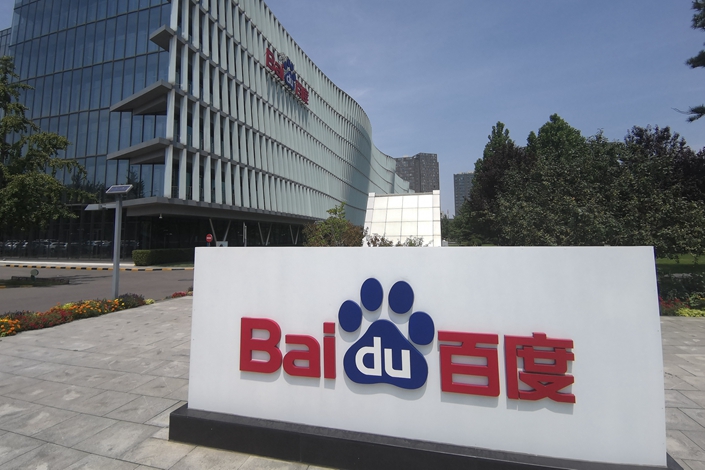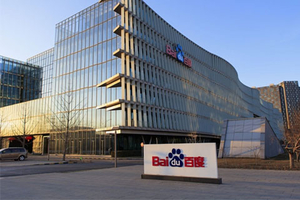10 Years of Caixin: Baidu’s Dangerous Ad Game

Editor’s note:
Since its founding 10 years ago, Caixin has been a witness to China’s social and economic transformation and has worked to uncover the stories and key people behind this process, which has required the persistent, professional pursuit of truth.
To mark our 10th anniversary, we are taking a look back at 10 of our most important original investigative reports, which led the way in Chinese media and uncovered the twists and turns of the country’s ongoing modernization.
These stories include the tales of a corrupt top security official, a barbarian at the gate, a fugitive tycoon, the industrial safety failures that led to more than 170 deaths in a series of fatal blasts, and the environmental destruction wrought by the pursuit of economic growth at any cost. We will be publishing one story of the series each day through Nov. 11.
Baidu Inc. was China’s only major search engine after Google left the market in 2010. Despite its failure to adapt to the mobile era, which dawned around that time, the company was still able to rack up serious ad revenue in the absence of the global titan.
Founded in 2000 and listed in New York five years later, Baidu saw its revenue explode between 2010 and 2015 — going from 7.9 billion yuan ($1.1 billion) to 66 billion. However, its strong revenue growth was partly due to practices which saw it operating on the margins of the country’s internet regulations.
In an in-depth investigative report in 2016, Caixin looked at the dark side of Baidu’s journey to fill the void left by Google as it strived to maintain its increasingly diminishing relevance in an era dominated by mobile apps. At the heart of the report were the banned ads Baidu was allowing through at night, such as those related to illegal gambling.
Baidu blamed third-party ad agencies and denied it had direct responsibility for the problem, which was widely reported by Chinese media at the time. That was just another bad news day for Baidu in 2016, a year in which it had already landed in hot water when a college student died after the company’s search engine led him to a bogus and expensive experimental cancer treatment.
Caixin sent reporters to visit Baidu regional offices across China and carried out extensive interviews with industry insiders and analysts. After three months of work, Caixin was able to detail how the company had turned a blind eye to content posted by third-party ad agencies and reveal the precariousness of its business model.
Baidu said the third-party agencies had bypassed its advertiser verification system by buying ad space through regional sales offices, and then reselling that space to unqualified advertisers. But it was pressure from Baidu’s headquarters to hit sales targets that drove those regional offices to work with third-party agencies.
After the Caixin report, the Beijing municipal cyberspace regulator launched an investigation into Baidu, which said it would improve its oversight policies. Media scrutiny also led to Baidu reevaluating its reliance on third-party agencies.
However 2016 was far from the end of Baidu’s advertising troubles, and indeed things have only become tougher for the company once called “China’s Google.”
Baidu is now facing serious competition for ad revenue, especially from upstart ByteDance, the world’s most valuable startup, which operates news aggregator Toutiao and short-video app Douyin, known as TikTok overseas. Playing catch-up with ByteDance, Baidu has increasingly focused on “in-feed ads” that appear on the Baidu app’s news pages, as it works to retain relevance in the mobile internet era.
Contact reporter Mo Yelin (yelinmo@caixin.com)
Read more about Caixin’s anniversary series:
10 Years of Caixin: Popping Anbang’s Bubble
10 Years of Caixin: Billionaire's Oil Empire Brought Down by Risky Financing
10 Years of Caixin: Star Chinese Fund Manager Arrested After 2015 Market Rout
10 Years of Caixin: Mapping Zhou Yongkang’s Vast Web of Graft
10 Years of Caixin: The Army Logistician Who Lined His Own Pockets
10 Years of Caixin: Exposing Fugitive Tycoon Guo Wengui
10 Years of Caixin: Tianjin’s Lethal Explosions
10 Years of Caixin: The Environmental Cost of Land Reclamation

- PODCAST
- MOST POPULAR






